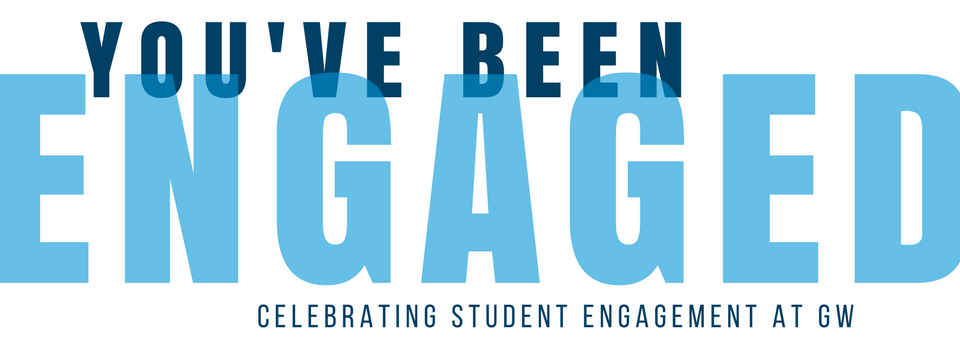by Natalie Hershberger (nhershberger@gwu.edu) and Bridgette Behling (bbehling@gwu.edu)
The Center for Student Engagement (CSE) Leadership Programs empower students to explore and build their leadership potential through a variety of co-curricular workshops and programs. Through our work, we want to produce ethical leaders who can think critically and take action to meet the challenges of today’s world and a future that we can’t yet imagine.
Leadership, critical thinking, collaboration, and communication are among the top skills employers list as the most essential aspects of a new hire. Students should be able to articulate the specific leadership skills they learned at GW and how that makes them a stand out candidate for future internship, career, and graduate school opportunities.
Through a student’s time at GW, we not only want them to study and learn about leadership in classroom or workshop spaces, we also want to provide students with experiential opportunities to practice leadership, reflect on their experiences, and grow into more confident and competent leaders. Learn more about CSE Leadership Programs at the CSE website.
Designing a Framework for CSE Leadership Programs
Leadership is a broad concept that is constantly being broken down into more tangible models, theories, or definitions to help people better understand and learn about leaders and leadership. Some scholars reach back to Aristotle for inspiration while others create new and modernized theories for specific industries and audiences.
In order to be consistent and effective in our programming, we needed a clear structure to guide our work. Rather than selecting an existing model, we chose to build our own framework that would be based in research and best practices, but tailored to fit the needs of the GW student body, regardless of academic major or extracurricular involvement.
A group of Leadership Programs and Student Involvement team members reviewed relevant literature and research, programming at GW’s market basket schools, GW’s values and strategic plan, and career readiness competencies. Additionally, the group reviewed work done by a Citizen Leadership Working Group that had previously formed to advance leadership initiatives from the strategic plan and build the transferable skills students need to increase their capacity as students and socially responsible leaders.
Five Leadership Pillars
As a result of that work, the following five Leadership Pillars were chosen: Self-Awareness; Communication; Organizational Management; Diversity, Equity, and Inclusion; and Social Responsibility. In teaching these concepts, an emphasis is placed on critical thinking and experiential learning to further prepare students for future success. An overview of the pillars is below. The descriptors provided are just a few critical elements of each pillar. Workshops related to each pillar cover more concepts than those listed below.
SELF-AWARENESS
Values ⧫ Motivation ⧫ Identity Development ⧫ Personal Strengths ⧫ Opportunities for Growth
COMMUNICATION
Interpersonal Skills ⧫ Dialogue across Difference ⧫ Verbal and Non-Verbal Communication
ORGANIZATIONAL MANAGEMENT
Goal and Mission Development ⧫ Group Dynamics ⧫ Conflict Management ⧫ Task Completion ⧫ Understanding Policies and Procedures
DIVERSITY, EQUITY, & INCLUSION
Inclusive Practice ⧫ Social Justice ⧫ Representation ⧫ Intercultural Competence ⧫ Allyship
SOCIAL RESPONSIBILITY
Respect ⧫ Empathy ⧫ Ethics ⧫ Integrity ⧫ Community Building ⧫ Civic Engagement ⧫ Service
Among other examples, these Leadership Pillars have been used to build content for LEAD GW workshops, to organize Excellence in Leadership Seminar sessions, and to outline the curriculum for the new Leadership Foundations Institute. Much like learning outcomes for an individual program, these pillars have offered a valuable roadmap for our work and we’re excited to continue exploring new ways to capitalize on this framework.
For a visual summary of last year’s programming, refer to the CSL Leadership Programs Report.
Natalie Hershberger is the Program Coordinator for Leadership, overseeing LEAD GW, SUMMIT Outdoor Challenge Course, and Leadership Foundations Institute. Bridgette Behling is the Director of Community Support & Leadership, overseeing leadership education, outdoor education, and support for special populations including graduate, distance, first-generation, international, and transfer students.

